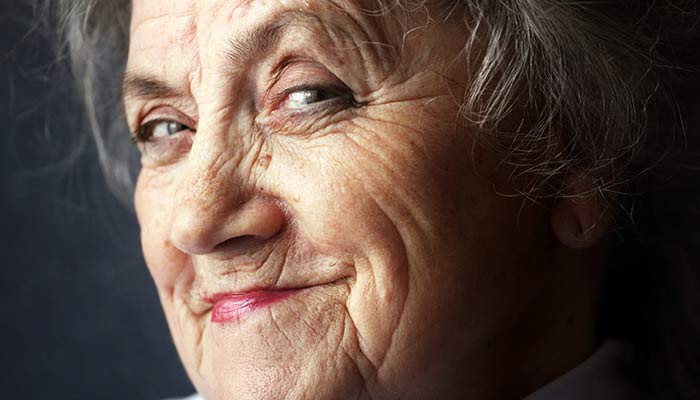[Name of E-Newsletter]
Helpful tips for family caregivers
December 2017/January 2018
Everyone needs a break now and then. A step away from your routine will lend a fresh perspective to your caregiving, show you options you didn’t think you had, and get you back in touch with who you are. Our article about respite care provides practical advice for arranging a short getaway.
And speaking of a new perspective, how is your loved one’s vision? If he or she is over 80 years old, there’s a good chance of cataracts. While these are slow-growing, they do need to be monitored. Permanent damage can occur if surgery is postponed for too long.
On the financial side of caregiving, you may have heard of a “reverse mortgage.” If your loved one owns is or her house, check out our article to see if it’s an option worth exploring.
- Take a break: Options for respite
- Cataract surgery very effective
- Is a reverse mortgage appropriate?
Take a break: Options for respite
 Go to bed when you’re ready, sleep without interruption, and do what you want all day. Ahhh… If you’re providing full-time care for your loved one, you may long for a night to call your own. Better yet, a few days and nights of R&R.
Go to bed when you’re ready, sleep without interruption, and do what you want all day. Ahhh… If you’re providing full-time care for your loved one, you may long for a night to call your own. Better yet, a few days and nights of R&R.
An extended respite break isn’t indulgent, it’s smart. Providing care full-time is physically and emotionally demanding. Taking a break gives you time to replenish your personal resources so you can be the loving, patient, care provider you want to be.
Here are some options
Your relative stays home. If you already have a hired caregiver, ask if he or she would provide some multi-day help. Or, make arrangements with a home care agency. Have the agency’s care provider spend time at the house with you and your relative ahead of time. Easing in helps your loved one feel safer and lets the provider learn the routines.
You stay home. Typically, this means finding a facility that has beds available for short-term occupancy. Plan ahead to get the dates you want. Expect some paperwork, and an assessment by the facility to fully understand your family member’s needs.
- Assisted living. An assisted-living facility is an option if your loved one has only mild disability. A person capable of handling some independence may enjoy the social activities and communal meals.
- Memory care. If your relative has moderate or advanced dementia, then a specialized care unit with trained staff and closer supervision is more appropriate.
- Skilled nursing facility. If your loved one has medical needs (wound care, injections, IV medication, pain management), a rehab facility is the best match.
Most of these arrangements are private pay, unless you are on hospice. Check with the VA, fraternal organizations, or your Area Agency on Aging for available respite grants.
Return to topCataract surgery very effective
 Too often older adults assume that poor eyesight is a given. Indeed, half of us will have cataracts by the time we are 80 years old. But surgery is easier now and extremely effective.
Too often older adults assume that poor eyesight is a given. Indeed, half of us will have cataracts by the time we are 80 years old. But surgery is easier now and extremely effective.
The importance of monitoring
Cataracts involve a clouding of the lens of the eye. Cataracts develop slowly and require regular checking.
Signs of a cataract
Anyone over 65 years of age needs an eye exam every year. Make an appointment sooner if your loved one complains of:
- blurry or cloudy vision
- extra sensitivity to light
- halos around sources of light
- difficulty seeing at night
- needing more light to read
- bright colors appearing faded or yellow
As cataracts grow, there is potential for
- Injury. Cataracts blur vision. This increases the risk of falls and other injuries. Poor nighttime vision can also lead to car accidents.
- Depression. With cloudy vision, your loved one may withdraw. Activities that used to be pleasant can become too challenging. Depression and isolation are common.
- Permanent blindness. Cataracts are slow growing. But delaying surgery for too long can result in permanent damage.
Surgery
Cataract surgery is brief and safe. Night vision and reading in dim light may still be difficult. But other than a clearer view of their wrinkles, most people are delighted with the improvement! It only takes about ten minutes. Medicated eye drops are used for anesthesia. The surgeon dilates the eye and removes the cloudy lens. An artificial lens is implanted. Cataract surgery may also correct other vision problems. For instance, many people are able to stop wearing glasses after the operation.
Prepare ahead of time
Arrange for a ride home and some extra help the day of surgery (for meals, especially). Eye drops are surprisingly difficult to manage alone. It’s best to set up help for putting in 2–3 drops several times a day, starting three days before the surgery and for several days afterwards.
Is a reverse mortgage appropriate?
 If your loved one is worried about having enough money, he or she may be considering a reverse mortgage. A reverse mortgage enables a homeowner to turn some of the equity in a home into cash. You might think of it as an advance payment on the accrued value of the home.
If your loved one is worried about having enough money, he or she may be considering a reverse mortgage. A reverse mortgage enables a homeowner to turn some of the equity in a home into cash. You might think of it as an advance payment on the accrued value of the home.
An approved lender will give your loved one money once a month, or in a lump sum. Interest is charged as the money is drawn against the house. When the borrower is no longer living in the house, the loan generally must be repaid. Usually this happens by selling the house.
A reverse mortgage may sound appealing, but it is a very complicated loan that should be considered carefully. Be sure you understand:
- The reason for getting the loan. Counselors strongly advise against using it for living expenses. If the money is to pay for care—at home or in a facility—you should consult with a financial or legal professional to explore all payment options.
- Cost of the loan. The loan origination fee on a reverse mortgage is high—usually 10% of the loan amount.
- Taxes, insurance, and maintenance. Some lenders require that money be borrowed—with interest charged—and “set aside” to cover these expenses.
- Surviving spouse. Once the primary borrower dies, or moves out—to a nursing home, for instance—the house may need to be sold to repay the mortgage. A surviving spouse may have to leave.
- Inheritance. The mortgage must be paid back when the borrower dies. This may require that the heirs sell the house. Depending on how much is owed, there may be no money left from the sale.
Before your relative takes out a reverse mortgage, talk with a HUD-approved reverse mortgage (HECM) counselor. These professionals are free, or very low cost. Call 800-569-4287 for a referral.
Return to top